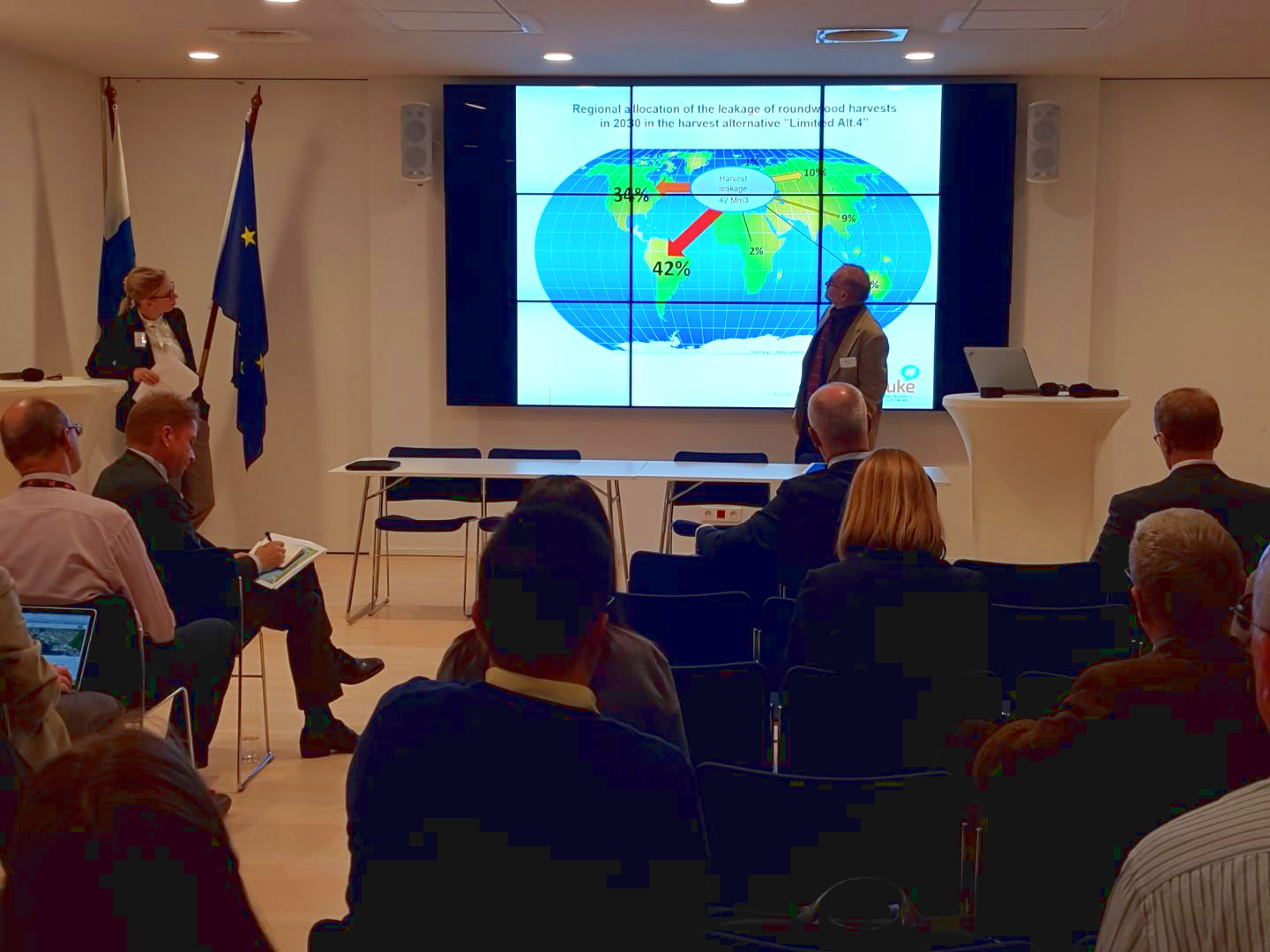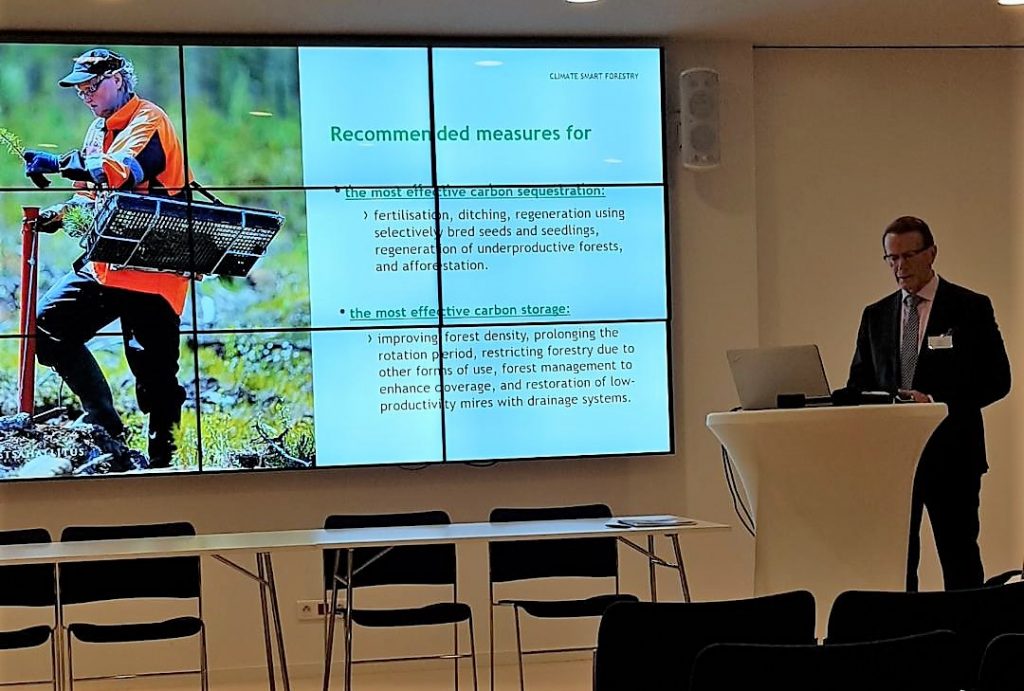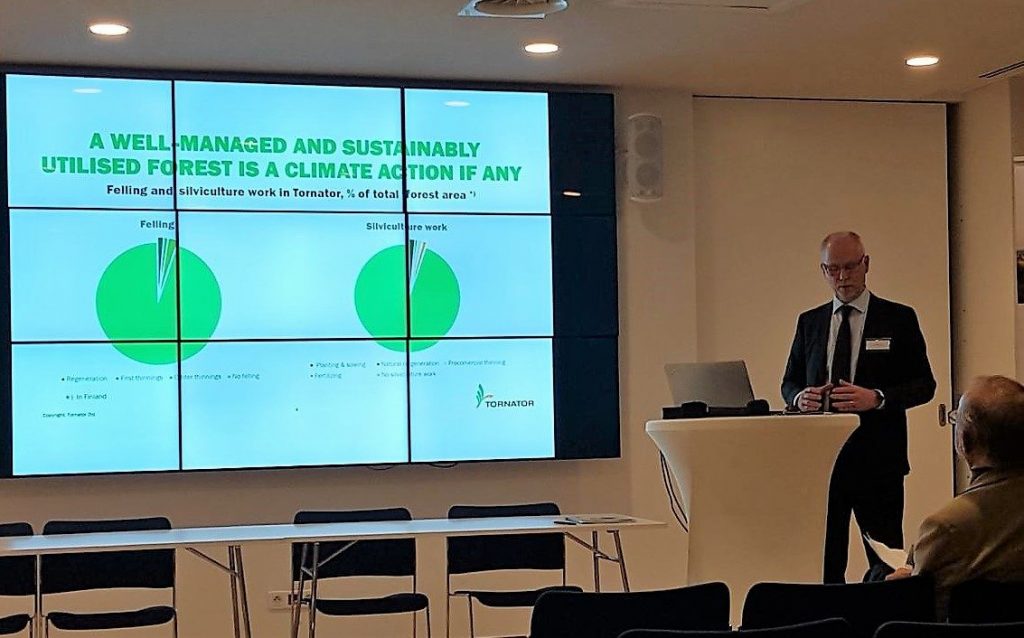Different aspects of forestry and climate change were discussed in Brussels on December 3rd, when Koli Forum gathered European policymakers and leaders to the Finnish EU Representation to discuss about the practical solutions offered by climate smart forestry.
The event included professor Birger Solberg’s (Norwegian University of Life Sciences) presentation of the results of a recent LULUCF study that showed how the potential harvest constraints in Europe would “leak” out to the rest of the world in form of increased loggings mainly in South and North America. At the same time also production of forest products as well as employment opportunities would shift away from Europe to areas with clearly higher risks for inferior environmental performance and true sustainability concerns. The study clearly showed that this leakage effect would take place regardless of the magnitude of the imposed harvest limitations.
Mr. Sylvain L’hote (Confederation of European Paper Industries CEPI) addressed the role of forest-based products in keeping the biogenic carbon flowing. Mr. L’hote stressed in his presentation the importance of advancing the low-carbon circular bioeconomy and how it can step-change the forest industry’s contribution to climate change mitigation by e.g. substituting fossil carbon intensive products.

Practical case studies both from publicly and privately owned forests were presented by Mr. Pentti Hyttinen from Metsähallitus and Mr. Sixten Sunabacka from Tornator respectively. Metsähallitus has examined how forest management can best promote carbon sequestration and storage in forests. The Finnish state-owned forests are administered by Metsähallitus that has conducted a carbon classification for each of the ten million forest compartments in commercial multiple-use. The classification describes the importance of a compartment in terms of carbon sequestration and storage and recommendations are drawn up for the stand regarding the application of the forest management guidelines.
Tornator’s Mr. Sunabacka introduced in his presentation practices for optimizing climate benefits and other values offered by forests. The company owns some 675,000 ha of forest land in three European countries. Mr. Sunabacka pointed out with concrete examples how managed forests act as carbon sinks while conservation forests role is to store carbon. Mr. Sunabacka also pointed out the importance of regenerating forests as soon as possible after the felling and by using improved seed material which can clearly speed up the growth and increase the carbon capture of the new forest.
The event ended with a lively discussion moderated by Mrs. Terhi Koipijärvi from Metsähallitus about the best practices and policies to leverage the positive climate impacts of forests. Sharing these experiences on an international forum was considered by all participants ever more important in order to spread the positive news as widely as possible.
Learn more about the topics from the presentation materials:
- Results of a recent LULUCF study. Birger Solberg, professor, Norwegian University of Life Sciences
- The role of forest products in carbon sequestration. Sylvain Lhote, Director General, CEPI
- CASE Metsähallitus: Climate Smart Forestry. Pentti Hyttinen, Director General, Metsähallitus
- CASE Tornator: Practices for optimizing climate benefits and other values offered by forests. Sixten Sunabacka, CEO, Tornator Oyj



